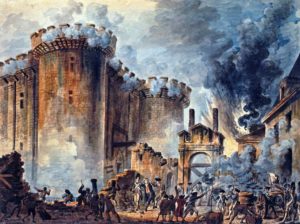“Waste no more time arguing what a good man should be. Be one.” – Marcus Aurelius
Yet More Stoic Stuff
“I begin to speak only when I’m certain what I’ll say isn’t better left unsaid.”
– Cato
More Stoic Stuff
“It is impossible for a man to learn what he thinks he already knows.”
– Epictetus
Stoic Stuff
“We all love ourselves more than other people, but care more about their opinion than our own.”
– Marcus Aurelius
Some Stoic wisdom
Let’s spend the rest of July reading from the wisdom of the Stoic philosophers. Here’s one of my favourites from the Meditations of Marcus Aurelius.
“At daybreak, when loth to rise, have this thought ready in thy mind: ‘I am rising for a man’s work.’ Am I then still peevish that I am going to do that for which I was born and for the sake of which I came into the world? Or was I made for this, that I should nuzzle under the bed-clothes and keep myself warm? ‘But this is pleasanter!’ Hast thou been made then for pleasure?”
Bulwer-Lytton 15
2012 Runner-Up in the Purple Prose Category:
Corinne considered the colors (palest green, gray and lavender) and texture (downy as the finest velvet) and wondered, “How long have these cold cuts been in my refrigerator?” — Linda Boatright, Omaha, NE
Bulwer-Lytton 14
2012 Winner, Romance
“I’ll never get over him,” she said to herself and the truth of that statement settled into her brain the way glitter settles on to a plastic landscape in a Christmas snow globe when she accepted the fact that she was trapped in bed between her half-ton boyfriend and the wall when he rolled over on to her nightgown and passed out, leaving her no way to climb out. — Karen Hamilton, Seabrook, TX
July 14
1789
Paris mob attacks the Bastille prison
The French Revolution had begun. The king Louis XVI had summoned the nation’s political classes to meet at Versailles in the form of the antique Estates-General (which had not met since 1610). There, the Third Estate, representing all Frenchmen not in either the clergy or the nobility, had declared itself the true national assembly and compelled the other two estates to join them. The possibility of true reform had Paris in a frenzy of excitement but the king’s dismissal of the Finance Minister Jacques Necker was seen as a conservative counter-coup. Rumours of the use of mercenary troops to crush the new Assembly were rife. Camille Desmoulins, a young radical lawyer, pistol in hand, declared to a crowd: “Citizens, there is no time to lose; the dismissal of Necker is the knell of a Saint Bartholomew for patriots! This very night all the Swiss and German battalions will leave the Champs de Mars to massacre us all; one resource is left; to take arms!'”
On July 13, various Parisian mobs broke into royal armouries and seized weapons; local militias now had muskets and cannons at their disposal. The next day the target was the Bastille, the medieval prison which dominated central Paris. The fortress had a grim reputation; it often housed those enemies of the crown who had been whisked away behind its walls never to be seen again. On July 14, however, its inmates only numbered seven: 4 forgers, two lunatics and the Comte de Lorges, an aristocrat accused of incest, but who may have been sent there by relatives as part of a property dispute. The expenses of the latter three were all paid by their families. The real target of the rebels may have been the gunpowder housed in the fortress.
The siege of the Bastille lasted all afternoon. The defending troops resisted the attackers, killing 98 of them for the loss of one of their own, but having no supplies to endure a long conflict, the governor, the Marquis de Launay, surrendered at 5:30 pm. He and five of his men were lynched by the mob and their heads paraded about on pikes by capering rebels. The seven released inmates were also paraded about for a time and made much of, until it was realized just what kind of men they were. The forgers were soon returned to prison, the madmen were found asylums, and the aristocrat alone was allowed to go free.
Quite why the French should treat this bizarre incident as the occasion for annual national rejoicing remains a mystery.
Bulwer-Lytton 13
2014 Runner-Up, Vile Puns
Dr. Fulton Crisp DMD, stoic superintendent of the prestigious Northwoods Dental College, entered the symposium for new students, took the dais amid the clamor of the first day of classes, produced a #6 dental pick from a pocket, held it aloft for all to see and spoke the immortal words, “May I have your attention please, this is not a drill, repeat this is not a drill.” — Jim Biggie
Bulwer Lytton 12
2015 Dishonourable Mention, Romance
It was debatable what Felicity enjoyed most about the night – the delicious dinner, the marvelous movie, or the satisfying sex – but one thing was clear and that was that she hoped she wouldn’t be doing it alone again next time. — Randy Blanton, Murfreesboro, TN
